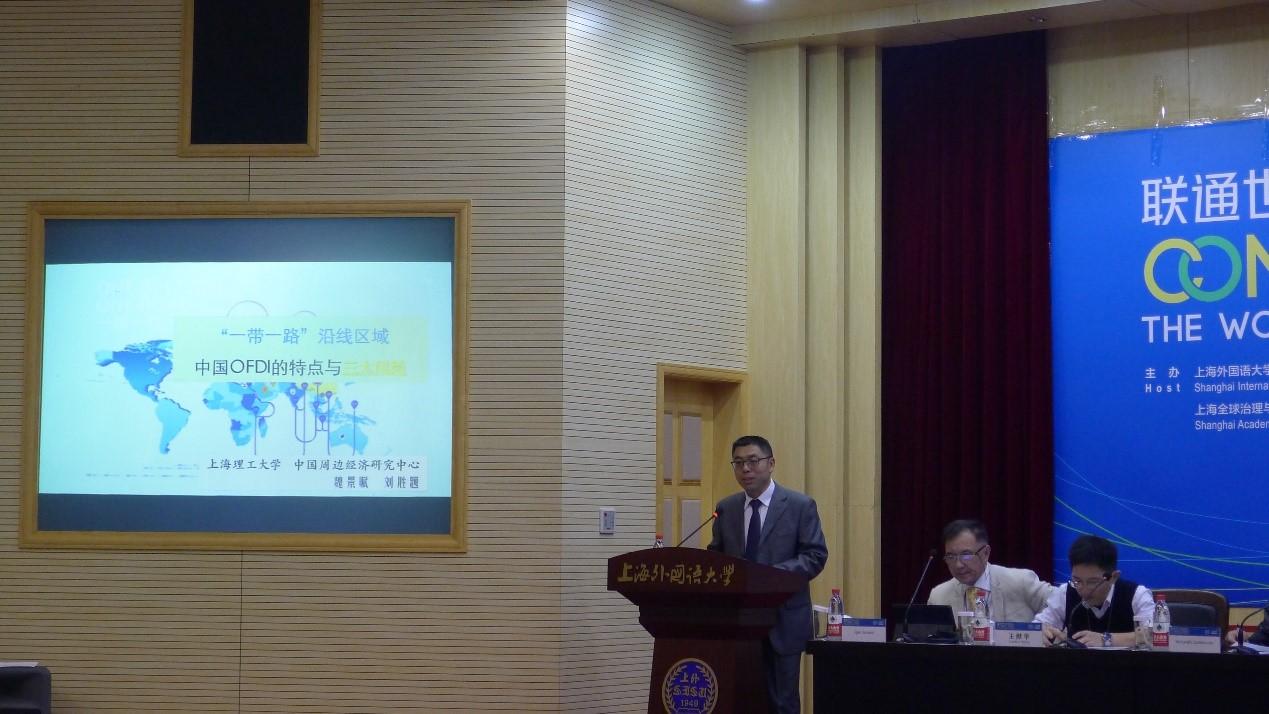Sponsored by the Shanghai Institute of Global Governance and Area Studies, the first International Symposium on "Connecting the World and the Future" undertaken by Shanghai International Studies University opened at the International Conference Center of Shanghai International Studies University (Hongkou Campus) on November 11.The meeting lasted for two days, and Kyrgyzstan's former Prime Minister Otorbaev, former Nepal's Prime Minister Nepal, former Director-General of UNESCO Bokova and more than 100 experts and scholars from Peking University, Fudan University and other relevant universities and related think tanks gathered in Shanghai. Extensive and in-depth exchanges have been conducted on global governance issues and regional country studies under the "The Belt and Road" framework.
Otorbaev,former Prime Minister of Kyrgyzstan, said that the implementation of the "The Belt and Road" initiative must consider the demand rather than the supply side. The idea of supply side reform should not be applied to international relations.Nepal's former Prime Minister, Nepal, strongly praised China's achievements in the past 40 years, and hoped that with the grand idea of "The Belt and Road" to link Europe and Asia, Nepal could get rid of the difficult economic situation as soon as possible.The former Director-General of UNESCO, Irina Bokovasaid, "The so-called soft power construction, more importantly, is to open the minds of young people so that they can express their culture and communicate smoothly!"
Scholars from Japan, Kazakhstan, Sri Lanka and other countries all believe that the strategic goal of China's so-called "hiding and keeping a low profile" is not clear.In terms of China’s current economic strength, China’s international discourse influence is not commensurate with it. They reminded China that the promotion of the "The Belt and Road" Initiative should not neglect the construction of soft power that focuses on humanities exchanges between the parties. Otherwise, it will be difficult for countries and people along the region to understand and accept the extension of China’s economic power.Mr. Jiger Janabel, Senior Fellow of New Vision, Eurasian Research Center, Kazakhstan, believes that in all Central Asian countries, Kazakhstan and China have the strongest desire to interconnect with each other, and put forward their own "Bright Path" plan to link China's"The Belt and Road" initiative.Kazakhstan also hopes to strengthen all-round economic cooperation with China and try to get rid of over-reliance on Russian economy. Yoichi Kato, Senior Research Fellow of the Asia Pacific Initiative, The strategic trap he put forward on the interdependence of big powers is also particularly eye-catching, and he believes that the high economic dependence between China and the United States on both sides is precisely their respective weaknesses.The strategic trap theory he put forward on the interdependence of big powers is also particularly eye-catching, and he believes that the high economic dependence between China and the United States on both sides is precisely their respective weaknesses.He appealed to politicians and scholars to pay attention to the fact that the United States deliberately cut off its scientific and technological and economic ties with China and tried to reduce the degree of close ties between the United States and China. In fact, in order to get rid of its own vulnerability threat, slipping into the cold war whirlpool may be the only result of similar intensification of isolation.
Professor Wei Jingfu, Director of the Institute for China Neighboring Economies(ICNE), and researcher Tang Qiao were invited to attend the meeting.At the sub-forum of the “B&R Initiative and Countries along the Routes” in the seminar, Prof. Wei Jingfu gave a keynote report titled “China's OFDI Characteristics and Three Major Risks” along the “Belt and Road” Area.With comprehensive and abundant data, the report enables participants and audience to understand China's position on global governance from an economic perspective.In the final stage of the free speech, when asked by the host about the suggestions, Professor Wei Jingfu said that the Ministry of education's "overseas student Fund Committee" set up a special fund to send more students to the countries along the belt, so as to train more scholars to know and understand the culture, politics and history of the countries along the belt. Scholars of the rule of law and history will lay a solid foundation for the ever-increasing bilateral or multilateral economic and trade cooperation between the two sides in the future. It will lay a solid foundation for the future bilateral and multilateral economic and trade cooperation between the two sides.The host and guests agreed with the proposal.

Photo / report by: Liu Yuchen
Translate by:Zhang Dawei
November 13, 2018

